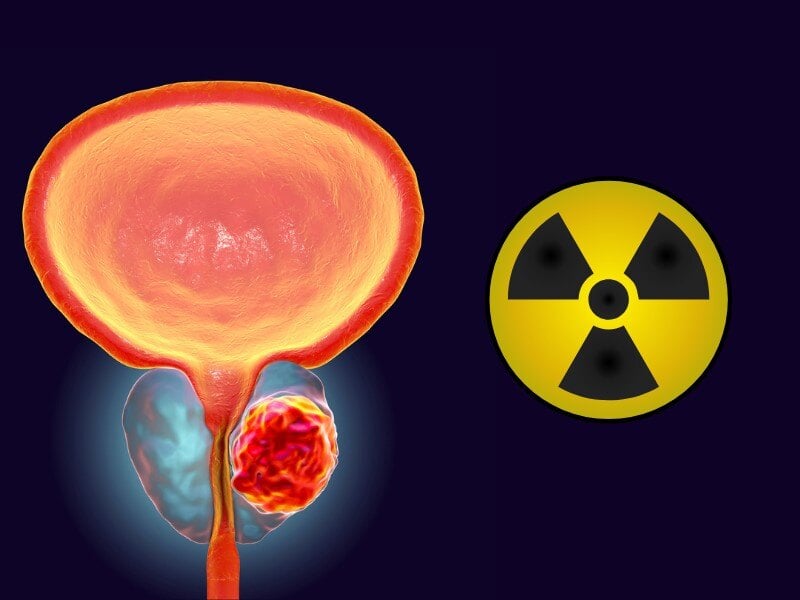Imaging Starts Using Brand New Radiotracer from Nuclidium

Clinical imaging has begun in a phase I clinical trial to assess a new radiotracer from Swiss ‘theranostic’ biotech Nuclidium. 61Cu-NuriPro (61Cu-NODAGA-PSMA I&T) is a disease staging imaging agent for prostate cancer.
This imaging agent is the diagnostic part of Nuclidium’s wider NuriPro program which uses copper radionuclides to tackle prostate cancer. NuriPro binds to Prostate Specific Membrane Antigen (PSMA), an established biomarker for the diagnosis, staging, and treatment of prostate cancer.
Read more:
- Study Analyses Predictive Biomarkers for COVID-19 ICU Patient Mortality
- Group Identify Prognostic Biomarker for SCLC and Treatment Using Chemotherapy
- Proteomic Analysis of Serum Extracellular Vesicles Reveals Potential Biomarkers for Neuroblastoma
Clinical testing of the NuriPro program is currently being conducted at Hoag Memorial Hospital Presbytarian in Newport Beach, CA. The investigator initiated, non-randomised phase I trial will evaluate the safety and efficacy of 61Cu-NuriPro as a diagnostic imaging tool for prostate cancer.
Gary Ulaner, Director of Molecular Imaging and Therapy at Hoag Memorial Hospital Presbyterian and Principal Investigator of the trial said: “Prostate cancer remains the most frequently diagnosed cancer and the second most common cause of cancer death in American men. Rapid and precise diagnosis is essential for effective treatment.”
The trial will compare the candidate to an already FDA-approved, Fluorine-18 based, PSMA-targeting radiotracer. Nuclidium says that its radiotracer candidate can offer benefits when compared to other currently available solutions.
“Copper-based candidates have shown greater imaging capacity with less toxicity in pre-clinical studies. Copper’s unique properties allow us to establish the first true theranostic pipeline that can achieve more accurate staging of the individual patient and more precise treatment of their disease,” said Leila Jaafar, CEO and Co-Founder of Nuclidium.
She continued: “Our NuriPro diagnostic’s imaging profile can overcome both detection and production challenges for physicians and patients living with prostate cancer and we look forward to further exploring its potential.”
Furthermore, Nuclidium’s candidate offers a 3.3 hour half-life, compared to the current average of 1 to 2 hours from existing products. This allows 61Cu-NuriPro to have further distribution range after production.
The company boasts ease of manufacture for their product at room temperature, which enables on-demand preparation and a simplified and easy-to-apply workflow with reduced need for laboratory equipment. Furthermore, Nuclidium also said a press release: “It [61Cu-NuriPro] further enables delayed imaging, allowing for the detection of even the smallest metastases.”
Regarding the latest results from the ongoing trial, Ulaner commented: “The first patient has not experienced any adverse events so far and the scan with 61Cu-NuriPro showed more osseous lesions than 18F-piflufolastat, at 1 hour post-injection. Also, the PET scans with 61Cu-NuriPro identified more osseous lesions at 2 and 4 hours compared to 1 hour post-injection. These preliminary clinical findings are in accordance with the preclinical results and underline the potential, favourable imaging performance of 61Cu-NuriPro.”
Along with the diagnostic portion of the program, Nuclidium are also developing a therapeutic radionuclide 67Cu-NuriPro (67Cu-NODAGA-PSMA I&T) currently in its preclinical stages, which aims to treat patients with prostate cancer. The company aims to begin a phase I clinical trial of 67Cu-NuriPro in 2025.
Upon successful completion of the trial, Nuclidium wants to advance their NuriPro program into a Phase I/II theranostic clinical trial. This would evaluate both the 61Cu-based imaging radiotracer as well as the 67Cu-based therapeutic candidate.




.jpg)
